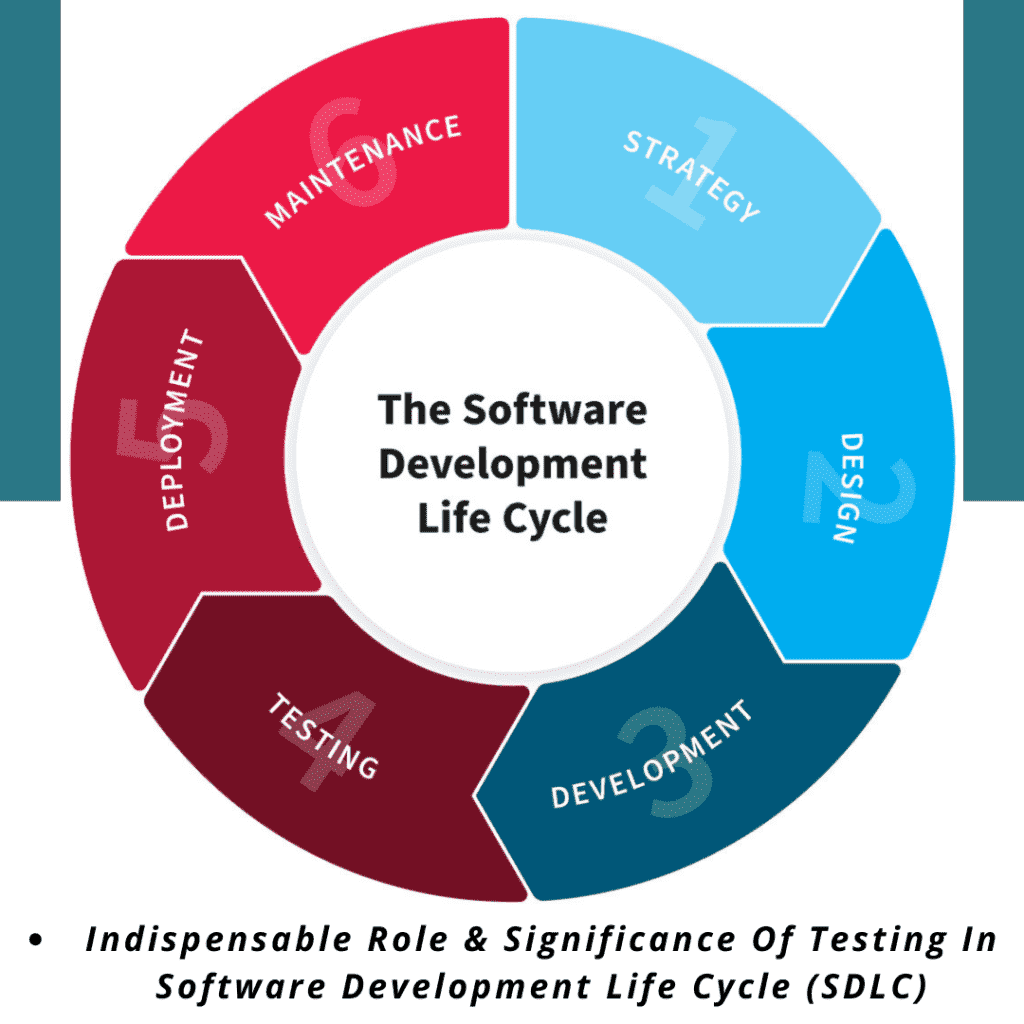Testing, taught at software testing course in Pune, is one of the most crucial procedures of Software Development Lifecycle (SDLC). It helps companies to carry out comprehensive evaluation of software ensuring products meet client’s requirements. Testing phases aid companies to identify all bugs and errors in software before commencement of implementation phase. If software bugs are not resolved prior to deployment, they tend to adversely affect client’s business. The more you delay detection of these issues, the greater cost you’re likely to face. There’re many ways to conduct testing taught at software testing training in Pune, in software development lifecycle. Techniques employed in testing imparted at software testing course in Pune, depends on software development model, stage of procedure, and objectives of testing process.
Software Development Lifecycle (SDLC)-Software Development Lifecyle (SDLC) is methodology used for developing software, comprising of series of steps required for building, maintaining, altering, replacing, accentuating software components. SDLC serves as pipeline for implementation of software projects in structured manner. As a result of which, companies have procedure for enhancing software quality and optimizing overall development procedure. SDLC is continuous process consisting of numerous phases, each phase being crucial for fulfilling clients’ requirements entailing achievement of project goals.
Testing Phases Taught at Software Testing Training in Pune, Integral to Software Development Life Cycle:
- Requirement analysis & planning, without which no software team can develop solutions.
- Validating requirements for projects in document known as Software Requirement Specification (SRS) for clients to see for validation.
- Designing product architecture employing SRS document & saving it in Design Document Specification (DDS) once completed, which contain diagrams like Entity-Relationship Diagram (ERD) for data modelling or Data Flow Diagram (DFD).
Software Development Phase-In development phase, developers start working on actual projects, developing code from scratch using design specification mentioned in DDS. Depending on SDLC employed by companies, the way you decipher software components tend to differ. Programmers are required to follow best practices imparted at software testing course in Pune, while coding software components. It’s imperative for programmers to write code in detailed and synchronized manner for clean and efficient coding indispensable for software performance.
Testing Phase in SDLC-Testing remains consistent part of project throughout SDLC. Main objective of testing procedures taught at software testing training in Pune, is to report, monitor, resolve and retest software components until they reach quality standards defined in initial SRS. Many teams employ documents like RTM for tracing out projects’ main requirements.
Deployment & UAT Importance-Once done with testing imparted at software testing course in Pune, software companies deploy and release products in market. In some cases, product deployment can extend over several phases depending upon companies’ business strategy. Products are subjected to changes as per customers’ feedback.
Maintenance-Majority of software products need maintenance services churned out by software vendors after completion.
Importance of Testing in SDLC-Testing procedure learnt at software testing training in Pune, helps in validating functional and non-functional features and projects requirements, enabling you to catch issues before deployment and release of end products. Furthermore, testing detects hidden errors if applied in early stages of development. Therefore, expense of resolving these bugs is low and minimal as compared to later stages, simultaneously making end products superior compared to competitors. Moreover, testing taught at software testing course in Pune, invokes greater engagement from users, who can recognize difference between quality and experience. Lastly, testing tends to reduce overall development and maintenance costs of projects.
Software Testing Models in SDLC:
Waterfall Model-Waterfall development model follows linearly sequential flow. In this methodology, requirement analysis, designing, development, integration, testing, and deployment phases are clearly defined in separate phases not overlapping with each other. It’s used in projects that don’t have changing requirements.
V-Shaped Model-Testing software component is planned, with procedures turning upwards after development phase, testers using test plans for evaluating specified components of products. Shifting starts from development phase allowing typical V shape formation.
Prototyping Model-Promotes concept of creating barebone versions of software applications serving as prototype for application, reducing length of project making it less time-consuming.
Iterative & Incremental Model-It’s designed to overcome shortcoming of linear models. After initial planning, project is approached with cycle of iterations, developers code software components in small iterations, delivering them incrementally.
Agile Model-It’s centered around iterative & incremental approach, cross-functional teams working in collaboration for fulfilling clients’ requirements including ability to handle changing requirements more effectively than other models. Less time is spent on requirement analysis with more emphasis on practical feedback from clients.
Kinds of Testing in SDLC:
Unit Testing is performed on smaller components of software, usually smallest testable components that testers can compile and load.
Integration Testing-Testers trained at software testing course in Pune, combine varied software modules at once for collective testing ensuring collective system adheres to correct data flow.
System Testing-Collective systems in integrated testing are combined further into single integrated system, testers trained at software testing training in Pune assessing project’s functional requirements.
User Acceptance Testing-Customers use software components to see if it fulfils requirements, asking development team to make further product enhancements if need be.Perform Software Testing in SDLC with ITView in tow! Leading Software Training Institute in Pune, boosts up your Market Value and Employability with Job-Oriented courses like Software Testing, Java Full-Stack Developer Course, Python Full-Stack Developer Course, Data Analytics Training, PHP Classes. ITView also provides regular-career specific courses such as Python Classes, Selenium Training, AWS Training, Java, Tableau Training, Power BI, Angular Training, Web Designing & DevOps Training in Pune. Qualify yourself for successful career path in Tech Landscape!

